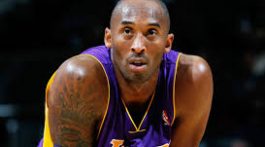Joe Paterno died Sunday at a State College, Pa., hospital, suffering in his final days from lung cancer, broken bones and the fallout of a horrific scandal that not only cost him his job, but also his trademark vigor and a portion of his good name. He was 85 years old.
This is a complicated passing. What was once the most consistent and basic of messages – honor, ethics and education – seemingly lived out as close to its ideal as possible was rocked Nov. 5, 2011, when a grand jury indicted Paterno’s former defensive coordinator, Jerry Sandusky, of multiple counts of sexual abuse of children.
Many, including Penn State’s Board of Trustees, believed Paterno could have and should have done more to stop Sandusky, especially after allegations of misconduct arose in 2002. Within days Paterno was fired from the program and school to which he’d become synonymous.
Now, a little more than two months later, he’s gone for good, a bitter, brutal ending for an American original.
He was the winningest college football coach of all time, compiling a 409-136-3 record. He won national titles in 1982 and 1986 and recorded four other undefeated seasons, including consecutively in 1968 and 1969.
In his final days, that wide-eyed optimist and aw-shucks success story was gone. The Sandusky scandal had sapped what no opponent ever could. He sat earlier this month at his kitchen table with, not coincidentally, Sally Jenkins, the Washington Post columnist and Dan Jenkins’ daughter, for his last public words.
He’d lost his hair from chemotherapy. His breath was heavy. He sipped on a soda. “His voice sounded like wind blowing across a field of winter stalks, rattling the husks,” Sally Jenkins wrote.
He tried to explain how he hadn’t done more to stop Sandusky, how he hadn’t followed up thoroughly, how he hadn’t pressed university administrators for answers.
“I didn’t exactly know how to handle it … I backed away and turned it over to some other people, people I thought would have a little more expertise than I did. It didn’t work out that way.”
Some saw no need for him to explain himself again: He’d said much the same thing in a 2011 grand jury appearance. For others, there is no suitable explanation, boys were abused, the mistake too grave for excuses.
This will be forever the battle over Joe Paterno’s legacy. A life of soaring impact, of bedrock values, of generations and generations as a symbol of how to live life to its fullest.











1 Comment